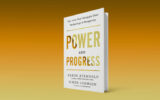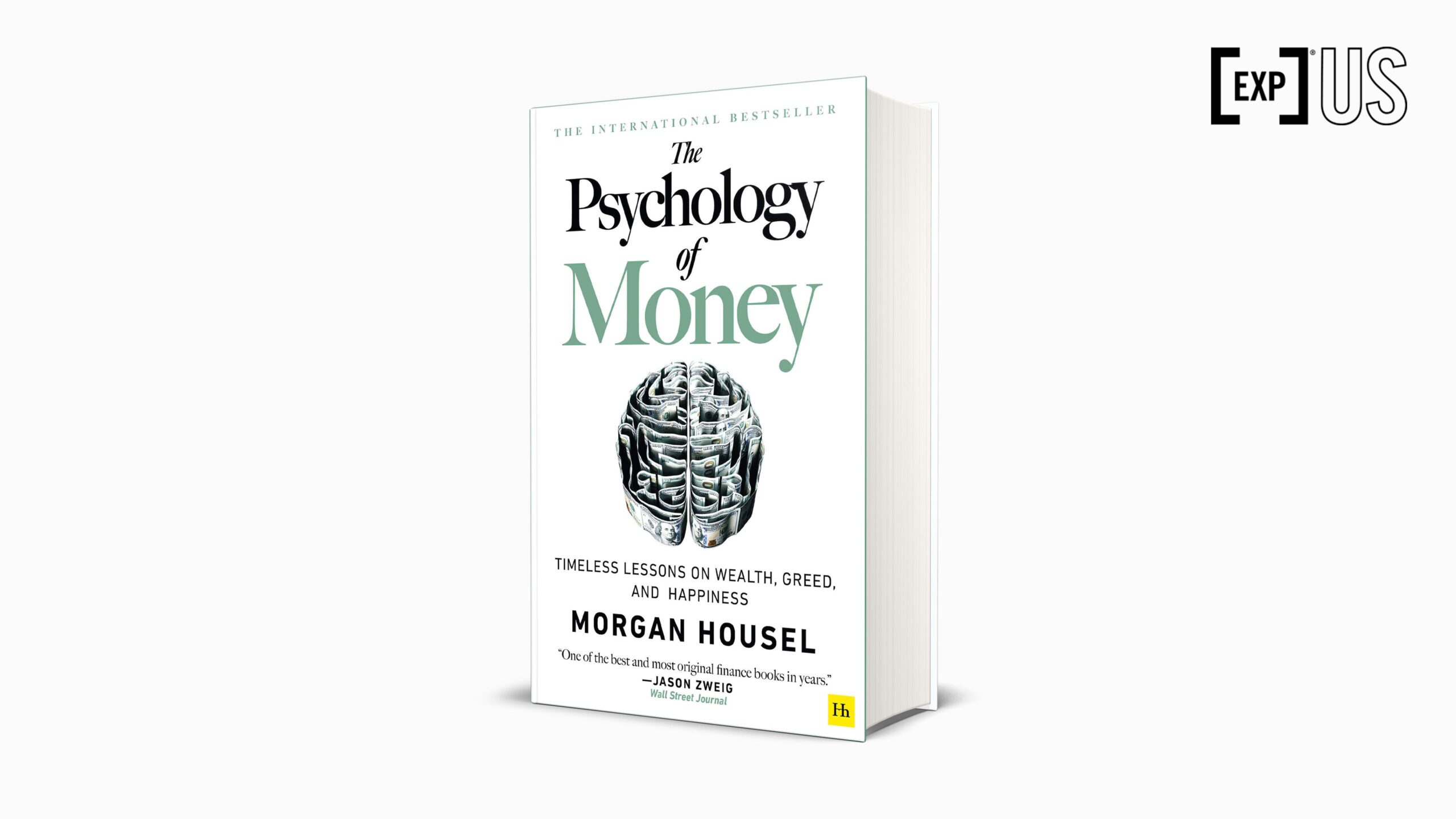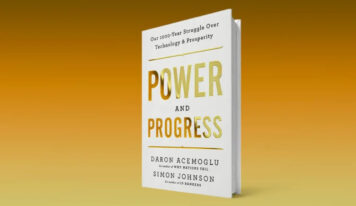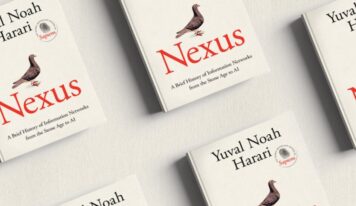Timeless lessons on wealth, greed, and happiness
Central Ideas:
1 – The trick to dealing with failure is to organize your financial life so that a bad investment here and a missed financial goal there won’t take you off the field, and you can keep playing until the tide is in your favor.
2 – Under the survival mindset, you need to pay attention to the mathematics of compounding. Compounding only works if you can give assets years to grow. It’s like planting an oak tree: with one year it grows little, but with ten or fifty, it has a powerful canopy.
3 – The margin for unforeseen events allows you to survive a range of possible outcomes, and survival allows you to stay in the game long enough to take advantage of a low probability outcome.
4 – Bubbles, like the real estate bubble of the mid-2000s, form when the lull in returns attracts enough money that the profile of investors changes from being a long-term majority to a short-term majority.
5 – Less ego, more fortune. Saving money is about the gap between your ego and your income, and fortune is what you can’t see. A fortune is created by suppressing what you could buy today to have more stuff, more options in the future.
About the author:

Morgan Housel is a partner at The Collaborative Fund and a former columnist for The Motley Fool Stock Advisor and the Wall Street Journal. He is a two-time Best Business Award winner from the Society of American Business Editors and Writers and Financial Journalism.
Ronald Read spent 25 years fixing cars at a gas station and 17 years sweeping floors at a branch of JCPenny, a chain of department stores. He had only a high school education. At the age of 38, he bought a two-bedroom house for $12,000 and lived in it for the rest of his life. He was widowed at 50 and never remarried. A friend related that Read’s main hobby was cutting firewood. Read died in 2014, at the age of 92. That’s when the humble rural janitor made headlines around the world.
In all, 2,813,503 Americans died in 2014. Less than 4,000 had a net worth of more than $8 million when they passed away. Ronald Read was one of them.
In his will, the former taxman left $2 million to his stepchildren and more than $6 million to the hospital and the city library. How did he get so much money? No lottery tickets or inheritance. Read saved what little he could and invested it in blue-chip stocks. He then spent decades waiting for that small initial investment to pay off and reach $8 million.
A few months before Ronald Read’s death, a man named Richard Fuscone had also caught the newspapers’ attention. Fuscone was everything Ronald Read was not. Fuscone, a Harvard-educated, post-graduate Merrill Lynch bank executive, had such a successful career in the financial markets that he retired at the age of 40 and became a philanthropist.
But then it all came crashing down.
In the mid-2000s, Fuscone took out a large loan to expand a mansion of more than 5,000 square feet in Greenwich, Connecticut. Maintenance costs were over $90,000 per month. Then came the financial crisis of 2008. Fuscone’s money turned to dust. High debts and illiquid assets drove him into bankruptcy. The mansion went up in smoke.
The fact that Ronald Read and Richard Fuscone can co-exist has two possible explanations. One says that financial results are guided by luck, regardless of intelligence and effort. This is true to a certain extent. The other (which I believe is more common) says that financial success is not a technical skill. It is a personal skill, in which your behavior is more important than knowledge.
I call this personal skill financial psychology. The purpose of this book is to tell short cases to convince you that personal skills are more important than the technical side of the capital.
Nothing is as good or as bad as it seems
Benjamin Graham is regarded as one of the greatest investors of all time, the father of the concept of value investing, and a mentor to Warren Buffett. However, most of Benjamin Graham’s investment success was due to his ownership of a huge stake in the shares of the American insurance company GEICO, which, as Graham himself admitted, broke all the diversification rules he had laid down in his writings. In this case, where was the fine line between boldness and recklessness? I don’t know the answer. Graham wrote about his bonanza with GEICO stock. “A stroke of luck or an extremely shrewd decision – is it possible to differentiate one from the other?” It’s not easy at all.
By looking for general patterns of success and failure, you will get closer to actions that can be put into practice. The more widespread this pattern is, the more applicable it can be to your life. Trying to emulate Warren Buffett’s investment success is difficult because the results are so extreme that the role of luck in his life performance is probably very high, and luck is not something that can be reliably reproduced. But realizing, as we’ll see later, that people who have control over their own time tend to be happier is a broad and common observation that you can do something useful with.

The trick to dealing with failure is to organize your financial life so that a bad investment here and an unmet financial goal there don’t take you off the field so that you can keep playing until the numbers are back in your favor.
But more importantly, in addition to recognizing the role that luck plays in relation to success, the role that risk plays means that we must forgive ourselves and leave room for understanding when judging failures.
Lessons from a particular field of study can often teach us something important about unrelated fields. Let’s look at the history of the ice ages, which spans billions of years, to understand what the ages teach us about how to make your money multiply.
The amazing thing is that something can take on such proportions from a relatively small change in climatic conditions. You start with a thin layer of snow leftover from a cooler summer that no one would care about, and then in a blink of an eye in geological terms, the entire earth is covered by a kilometers-thick layer of ice.
The great lesson of the ice age is that you don’t need an unusual force to create unusual results. If something begins to compound – if a little growth serves as fuel for future growth – an initial foundation can lead to results so extraordinary that they seem to defy logic. This defiance of logic can be so strong that you begin to underestimate what is ultimately possible, where growth comes from, and how far it can lead.
Buffett started investing seriously at the age of 10. By 30, he had a net worth of $1 million, or $9.3 million in today’s inflation-adjusted values. But what if he were a more ordinary person, spending his teens and twenties exploring the world in search of his passions, and at 30 his net worth was, say, $25,000?
And let’s say he still had the extraordinary returns he is able to generate (22% per year) on his investments, but stopped investing and retired at 60, to play golf and spend more time with his grandchildren.
What would be a rough estimate of his net worth today? No, it would not be $84.5 billion.
It would be $11.9 million. That is, 99.9% less than his actual net worth. In practical terms, all of Warren Buffett’s monetary success can be linked to the financial foundation he built as a teenager and the longevity he maintained during his old age. His skill is knowing how to invest, but his secret is time. This is how compounding works.
A good investment is not necessarily about making good decisions, but rather about being consistent in not making mistakes.
Capitalism is wild. But this is partly because knowing how to make money and knowing how to keep it are two different skills.
Making money requires taking risks, being optimistic, exposing yourself.
But keeping money requires the opposite of taking risks. It requires humility and the fear that what you have earned can just as quickly be taken away from you. It requires frugality and the acceptance of the fact that at least part of what you have achieved can be attributed to luck; therefore, you cannot rely on past successes to repeat themselves forever.
There are two reasons why a survival mindset is so important in dealing with finances. The first is obvious: few gains are so great that they are worth spending money on. The other, as we have seen, is the counterintuitive mathematics of compounding. Compounding only works if you can give assets years to grow. It’s like planting an oak tree: one year won’t bring much progress, ten can make a significant difference, and fifty are capable of creating something extraordinary.

We know that Buffett used various strategies. But it is important to dwell on what he doesn’t do.
He didn’t get bogged down in debt.
He didn’t panic and sell everything in any of the fourteen recessions he went through.
He didn’t depend on money from third parties (managing investments through a publicly-traded company means that investors cannot withdraw their capital).
He has not tarnished his business reputation.
However, if this money prevents you from having to sell your shares during a downturn, the real return you got from it is not 1% a year – it can be much higher because avoiding the desperate and untimely selling of shares can do more for your returns over time than buying a dozen shares at a time.
Being in control of your own time is the biggest dividend that money can pay.
Psychologist Angus Campbell worked at the University of Michigan. He wanted to know what made people happy. His book, The Sense of Wellbeing in America, published in 1981, begins by stating that people, in general, were happier than most psychologists assumed. However, some were doing better than others at it. And what made them different was not necessarily income level, where they lived, or education, because many people in each of these categories were chronically unhappy.
The great intrinsic value of money – and this cannot be repeated enough – is the ability it gives us to have control over our time. The ability to gain, little by little, a level of independence and autonomy that comes from unspent assets that give us greater control over what we can do and when.
A little extra wealth means being able to wait for a good job opening after a layoff, instead of having to accept the first one that comes along. This can change a life.
In his book 30 Lessons for Living, gerontologist Karl Pillemer interviewed a thousand elderly people in the USA in search of the most important lessons from their decades-long experiences. What they valued were things like good friendships, being part of something bigger, and spending time with their children. “Your children don’t want your money (or what your money buys), they want you. More specifically, they want you to be with them,” wrote Pillemer.
Spending money to show people how much money you have is the fastest way to have less money.
I remember a guy I will call Roger. He was about my age. I had no idea what his job was. But he drove a Porsche, which was enough for people to draw their own conclusions. Then one day Roger arrived driving an old Honda. What happened to the Porsche?” I asked him. He replied that the vehicle had been taken for non-payment of installments. He answered as if he was moving on to the next move in the game. Los Angeles has a lot of Rogers.
Wealth has to do with a current income. Probably someone who drives a $100,000 car is rich because even if the person has financed the vehicle, it takes a certain level of income to pay the installments. The same thing goes for someone who lives in huge houses.
Fortune, on the other hand, is something hidden. It is an unspent income. It is the option, not yet put into practice, to buy something. Its value lies in providing options, flexibility, and growth so that one day you will be able to buy more things than you are capable of today.
Seeking to be more reasonable works better than trying to be coldly rational.
A doctor’s goal is not just to cure illness. It is to cure diseases within the limits of what is reasonable for the patient. Fever may have secondary benefits in fighting infection, but it causes pain. And I go to the doctor to stop feeling pain. I don’t care about double-blind studies when I have chills right under the blanket. If there is a pill that can make the fever stop, I want to take it right away.
It may be rational to want to have a fever if you have an infection. But it is not reasonable. This philosophy – to aim to be reasonable rather than rational – should be considered by more people who have to make money-related decisions.
Academic research in finance is devoted to the search for optimal investment strategies in mathematical terms. My thesis is that in the real world people don’t want mathematically optimal strategies. They want strategies that improve their sense of well-being at night when they put their head on the pillow. Harry Markowitz won the Nobel Prize in Economics for exploring the mathematical relationship between risk and return. He minimized his future regret by splitting his investments 50-50 “between bonds and stocks.
The most important art of a plan is to have a plan for when the plan is not going according to plan.
Blackjack’s card-counting system works because it causes the odds to hang a little more in the player’s favor than the house’s. However, even when the numbers seem to be in your favor, if you bet too much and make a mistake you may end up losing so much money that there won’t be enough left to stay at the table.
Benjamin Graham was famous for his concept of the margin of safety. He wrote about it extensively, and in mathematical detail. But my favorite summary of his theory, which he himself quoted in an interview, is this: “The purpose of the margin of safety is to make forecasting unnecessary.”
The margin of safety – another name for the margin for unforeseen events – is the only effective way to safely navigate a universe governed by probability rather than certainty. And almost everything related to money is within that universe.

Contingency margin allows you to survive a range of possible outcomes, and survival allows you to stay in the game long enough to take advantage of a low probability outcome. The biggest wins occur infrequently, either because they don’t always happen, or because they need time to grow.
Beware of financial tips from people who play a different game than you.
The bursting of the dot-com bubble in the early 2000s reduced household wealth by $6.2 trillion. The bursting of the housing bubble took away more than $8 trillion.
It is hard to describe how devastating financial bubbles can be in social terms. They wipe out entire lives. Why do these things happen? And why does it keep happening? Why haven’t we learned our lesson?
Part of the reason it is hard to learn from bubbles is that they are not like a tumor, where all it takes is a biopsy to get an accurate diagnosis. They are more akin to the rise and fall of a political party, where the outcome is only seen in retrospect, but there is no consensus when it comes to cause and blame.
I believe that we will never be able to fully explain why bubbles occur. It is like asking why wars occur – there are almost always numerous reasons, many conflicting, all controversial.
But I would like to propose an explanation for them that goes unnoticed and applies to you: Naively, investors often take cues from other investors who are playing a different game.
Are you a day trader? Then the smart price to pay is “anyone” because you are just trying to make some money from what happens between now and lunchtime, which can be done at any price.
A golden rule of finance is that money chases profits as much as possible. If an asset catches on – it has been rising consistently for some time – it is not crazy for a group of short-term traders to assume that it will continue to rise. Not indefinitely, just for the short period they need. This lull attracts a fair amount of short-term investors.
And that is where it goes off. Bubbles form when the lull in returns attracts enough money that the profile of investors changes from being a long-term majority to a short-term majority.
The same thing happened during the housing bubble of the mid-2000s. It is hard to see sense in paying $700,000 for a two-bedroom house in Florida to raise your family for the next ten years. But it makes perfect sense if you plan to resell the house a few months from now, in a market with rising prices, to make a quick profit. This is exactly what many were doing during the bubble.
Perhaps you did not realize that the traders defining the marginal cost of the stock were playing a different game than you. Sixty dollars a share [of Cisco] was a reasonable price for traders because they planned to resell it before the end of the day when the price would probably be higher. But sixty dollars was a disaster for you because you planned to hold that stock for the long term.

Here are some short, practical lessons that can help you make better financial decisions:
- Make an effort to be humble when things are going well, and to forgive yourself when things are going badly. Because nothing is as good or as bad as it seems. The world is big and complex. Luck and risk are real and difficult things to identify. Remember this when judging yourself and others. Respect the power of luck and risk, and you will have a better chance of focusing on things that are really under your control. You will also have a greater chance of finding the right examples to follow.
- Less ego, more fortune. Keeping money is about the gap between your ego and your income, and fortune is what you don’t see. Therefore, a fortune is created by suppressing what you could buy today to have more things or more options in the future. No matter how much you earn, you will never be able to build a fortune if you are not able to limit your spending today, now.
- If you want to become a better investor, the most powerful thing you can do is to increase your time horizon. Time is the most powerful force in investments. It makes small capitals grow and bigger mistakes disappear. It can’t neutralize luck and risk, but it brings the results closer to what people deserve.
- Use the money to have control over your time, because not having control over your time is a universal, and very strong, hindrance to happiness. The ability to do what you want, when you want, with whom you want, for as long as you want pays the biggest dividend there is in finance.
- Be nice and flaunt less. No one is as impressed with your possessions as you are. You may think you want a luxury car or an expensive watch. But what you probably want is respect and admiration. And you are more likely to achieve these things through kindness and humility than with powerful engines and precious metals.
- Make the margin for unforeseen events sacred. The gap between what might happen in the future and what you need to happen in the future for everything to work out is what gives you perseverance, and perseverance is what makes the magic of composition work overtime. Often the margin for the unforeseen seems like a conservative attitude, however, if it keeps you in the game, it can pay off time and time again.
- Define what game you are playing, and make sure that your attitudes are not influenced by people playing a different game.
After these general concepts or modes that, in my opinion, should be observed when handling money, I also talk about the psychology of my personal finances.
Charlie Munger, once said, “I didn’t want to get rich. I just wanted to be independent. We can leave wealth aside, but independence has always been my personal finance goal. Running after the highest returns or leveraging my assets to live a more luxurious life doesn’t appeal to me. Both seem like games people play to impress their friends, and both have hidden risks. Mostly, I just want to wake up every day knowing that my family and I can do whatever we want on our own terms.
We are so committed to the independence plan that we have done things that make little sense in theory. We own a home that is not mortgaged, which is the worst financial decision we have ever made, but the best money-related decision we have ever made. Mortgage interest rates were absurdly low when we bought our house. Any rational advisor would recommend taking advantage of the cheap money and investing the extra savings in higher-return assets, such as stocks. But our goal is not to be coldly rational, just psychologically reasonable.
Over the years, I have come to the conclusion that we would have a great chance of achieving all of our family’s financial goals if we consistently invested in a low-cost index for decades on end, leaving the money alone for compounding to continue. Much of this view comes from our frugal lifestyle. If you have a way to achieve all your goals without having to take the extra risk of trying to outperform the market, then why to try to outperform it. I can afford not to be the greatest investor in the world, but I cannot afford to be the worst. When I see it this way, the choice to buy the index and hold it becomes obvious to us.
Review: Rogério H. Jönck
Photos: Damir Spanic, Mathieu Stern, Towfiqu barbhuiya / Unsplash
REMINDER
No matter how much we save or invest, I am sure that independence will always be a goal and that we will always do what helps us sleep peacefully at night.

FACTSHEET:
Title: The Psychology of Money
Author: Morgan Housel
![[Experience Club] US [Experience Club] US](https://experienceclubus.com/wp-content/uploads/2021/03/laksdh.png)










![[Experience Club] US [Experience Club] US](https://experienceclubus.com/wp-content/uploads/2021/03/logos_EXP_US-3.png)







